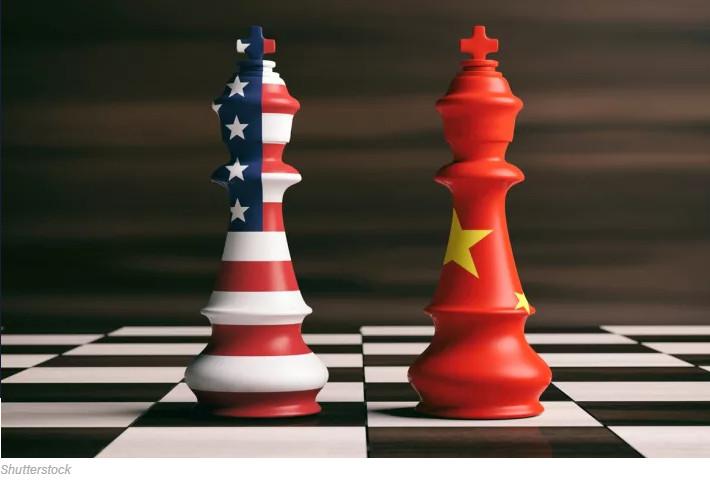
Story
China strives to be the biggest blockchain force in the world – with support from Facebook , Amazon and Microsoft.

The take-away:
- China's BSN blockchain infrastructure is set to provide global access to its services next month.
- The network 's reliance on U.S. cloud service providers makes it vulnerable to geopolitical threats.
- Increased tension between the US and China over the last few months could increase these risks.
- China's advances in other fields of technology have also met with opposition from the US government.
China's state-backed blockchain technology initiative seeks to be the leading supplier of Internet access for decentralized applications (dapps). Its first-moving advantage is significant, as are the geopolitical risks.
The network, called the Blockchain-based Service Network (BSN), is spreading internationally as tensions between the US and China are increasingly strained. BSN is a Chinese state-sanctioned blockchain initiative, although none can know that the network is funded by U.S. technology firms.
Amazon Web Services ( AWS), Microsoft and Google are among the main cloud service providers in BSN 's overseas data centers.
This structure is notable considering the hawkishness of the U.S. government in Chinese development. Trump's administration is considering a ban on Chinese social media app Tik Tok, Congress has allowed $1 billion for regional mobile providers to ditch networks from Huawei and the U.S. Commerce Department has prohibited semiconductor firms from selling chips to Huawei.
At the House Antitrust hearing on Wednesday, Facebook CEO Mark Zuckerburg painted the China-U.S. Technology rivalry as a zero-sum game. According to Zuckerberg, China is building its own version of the Internet, focused on very different ideas, and is exporting its vision to other countries.
This charged environment could potentially cause problems for BSN. China is trying to take the lead in blockchain and dominate this domain and that could end up putting this BSN project in the spotlight of the U.S.-China tech competition, said Paul Triolo, Head of Geotechnology at the Eurasia Group.
This would be the perception of places like Washington, he said.
US-China technology competition has been going on for decades, but the focus is shifting from search engines and social media to more fundamental levels of technology such as Huawei's telecommunications equipment, Triolo said.
